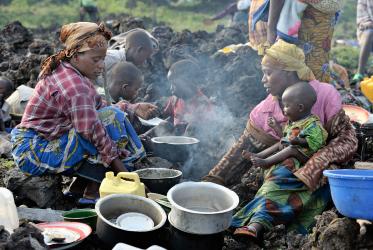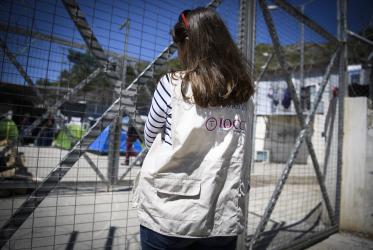Displaying 261 - 280 of 334
WCC conference explores ecological injustice in Uganda
21 April 2016
Refugees in transit: pushing boundaries all around
08 February 2016
Tveit on the “Ten Commandments” of food
26 January 2016
New video presents Ecumenical Advocacy Alliance’s call to action
13 January 2016
One refugee’s story: from Syria to France
07 January 2016
Consultation considers right to food in context of climate change
15 December 2015
During visits, Greek archbishop urges action on refugee crisis
10 December 2015
COP21: how climate change affects access to our daily bread
09 December 2015













